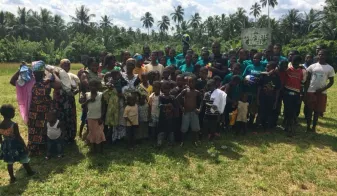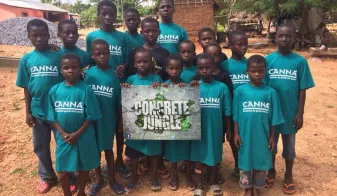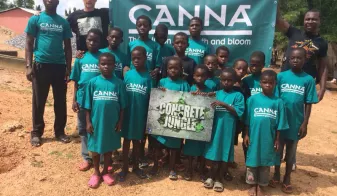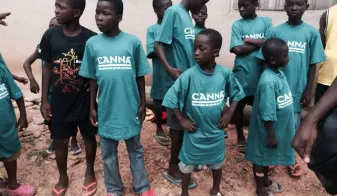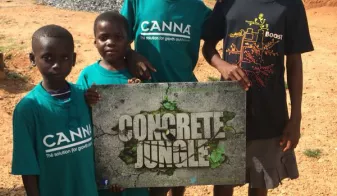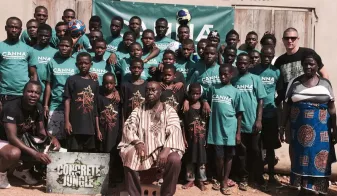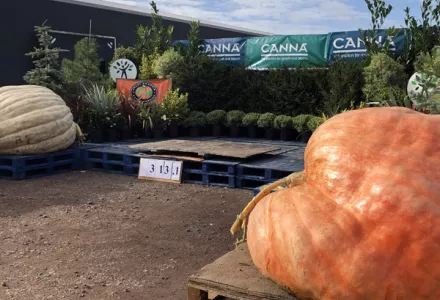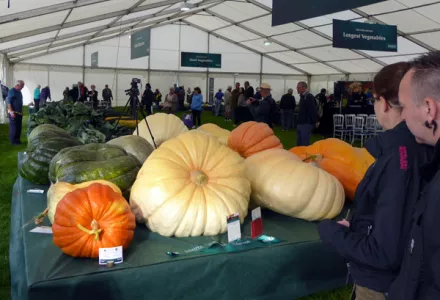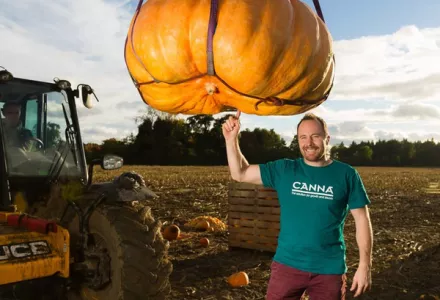A school where locals of the Ghanaian village Awuntu Kwoakrib can teach everything about cash crops (crops grown for sale to make a profit), which are more valuable than traditional harvests... It sounds like a beautiful goal, and one that CANNA and Concrete Jungle Hydroponics from Nottingham are proud to contribute to.
But to achieve this goal, a school first needs to be built. Concrete Jungle Hydroponics has covered the whole cost of the 40x20 foot building. CANNA supplied the school with a large amount of stationery equipment and clothing for the staff and pupils.
Phase 2 Agro Technology College specialize in education and training about organic farming and they will train the first thirty pupils (age from 8 – 56). After two years of courses, these pupils will know everything about cash crops. This is important for the future self-sufficiency of the pupils because these crops grow faster and they are more valuable than traditional harvests, such as coconuts. Coconuts take over a year to ripen and even then they sell for very little. Mushrooms, meanwhile, are ready for harvest after two months and fetch a much higher price.
At the end of the courses, each graduate is entitled to funding for their own farming project from the NGOs foundation, funded by Concrete Jungle Hydroponics.
Why organic growing?
The reason that PH2 Agro Tech College specializes in organic farming is that the land in Ghana is not contaminated by chemicals used to promote growth or prevent pests. The fertilisers used are made from local waste materials, such as manure, charcoal ash, wood shavings, fresh and dried vegetation. These materials are much easier for the local farmers to source and the crops produced are also higher in value.


